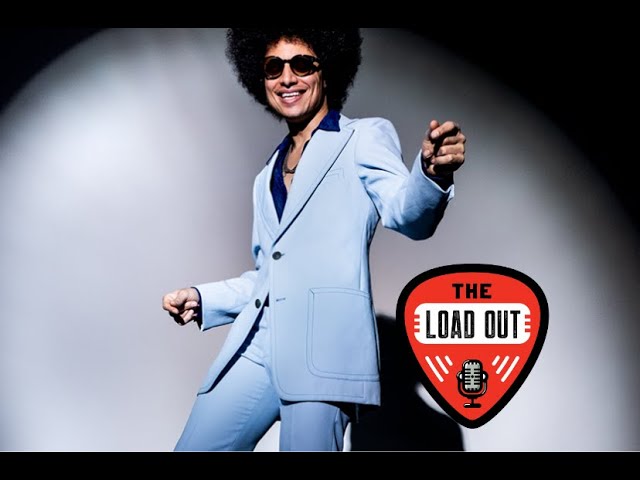via Jose James
Acclaimed international jazz artist Jose James has a composure about him that one might compare to James Bond.
The Minneapolis native claims he was one of the least talented artists in his music circles growing up, yet he ultimately attended The New School for Jazz and Contemporary Music. His first album, The Dreamer, debuted in 2008. Since then, he’s gone on to play at the Kennedy Center, The Hollywood Bowl, Ancienne Belgique, Jazz at Lincoln Center, the Melbourne Symphony and has recorded 11 more records including his latest which dropped April 5—the stunning album 1978, named for the year of his birth.
Along the way, he’s picked up honor after honor in establishing himself as an extraordinary jazz singer/songwriter—but one built for the hip-hop generation. Pitchfork called him, “one of the suavest vocal improvisers on the scene,” and it’s been said his arrangements and approach are “in deep conversation with funk, R&B, and hip-hop.”
Despite oozing cool, he’s not really all about himself. You quickly understand that James lives for the collaboration and building art that he loves with others.
“I really grew up with this idea that you make music with a band, with other people,” he told me recently on The Load Out Music Podcast.
He grew up feeling the diverse vibes of bands ranging from the Ohio Players and Peter, Paul and Mary found in his mother’s record collection; the funky global beats of his multi-instrumentalist father’s band, Ipso Facto; the western church music of his Catholic school and diverse artists such as Nirvana, 10,000 Maniacs, De la Soul, A Tribe Called Quest and Grammy-winner Bobby McFerrin who was the creative chair of the Saint Paul Chamber Orchestra for a time in the early 1990s.
When he was 17, James attended a McFerrin concert with the noted jazz pianist Chick Corea. It was then that he was hooked on the idea that a career in music was inevitable—but he still was surprised that others saw it as well.
“Wow,” James said. “People see something in me that I might not see. I didn’t really go to college. I didn’t want to do the traditional route. I was like, I can have a coffee shop job and pay my rent and see what happens. This is where my spirit is taking me.”
Despite a love for jazz, early on James understood that jazz could be limiting and wanted to explore the boundaries of the genre.
“There is a strong jazz radio, but it’s pretty strict about what they play,” he said, noting that listeners essentially find smooth or classic jazz on radio, but the parameters are narrow. Thus, he approaches each record with the understanding that he must keep certain singles within the ditches, producing them to be radio friendly, while stretching boundaries on other tracks with dance, pop and hip-hop beats.
“I think it’s more frustrating that jazz, in general, is not more popular in America,” he muses, despite his voice not elevating to indicate any semblance of anger. “You go to Tokyo, go to any shopping mall, restaurant, they are playing jazz.”
As James’ star has risen, he’s realized two principal realities about his chosen career: That money and power still drive the industry and that he would be little without the graciousness of other artists.
“It’s not just about talent, James said. “It’s about who’s pushing you and how much money.”
This became apparent to him when he released a single independently in 2012 to little fanfare. However, the same single was included on his first album for the vaunted Blue Note label and it became a sensational hit, landing him appearances on David Letterman’s and Conan O’Brien’s late-night shows.
James credits his success to mentors who have given him their time including legendary jazz pianist McCoy Tyner (who worked with John Coltrane), singer Anita Baker, composer Christian McBride, band leader Chico Hamilton and even former late-night host Jay Leno.
“There’s so much generosity going around,” he said. “You have to take the wins.”
As for 1978, James said that it is, “The first time I’ve really gotten personal in a concrete way. I’m going to reveal more about myself and where I’m from.”
He points to the racial politics of Minnesota and efforts to bring to bear a range of influences including Prince, Michael Jackson and even Bob Dylan.
“I call it party and politics because, to me, that’s what the 70s kind of resonates with. People knew how to party. They could throw down. But they were also famous for taking a stand.”
Thus, the first half of the album is what he calls “party,” while the second half focuses on “politics,” including pieces written in the memories of George Floyd and Trayvon Martin.
“I don’t really worry about it,” James said of injecting politics into his art. “I’ve definitely gotten some of that—the shut up and sing kind of vibe. If it’s important to you, I think you’ve got to talk about it. If people don’t like it, that’s kind of fine.”
It’s important to Jose James indeed. Enjoy a tremendous episode of The Load Out Music Podcast with the acclaimed jazz maestro.

